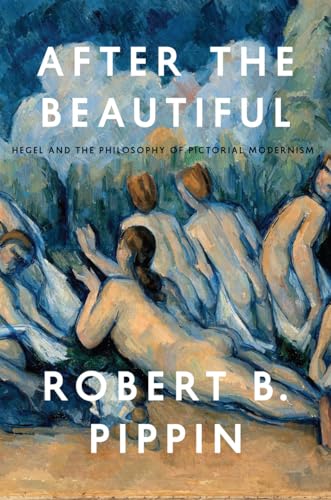Verwandte Artikel zu After the Beautiful: Hegel and the Philosophy of Pictorial...

Zu dieser ISBN ist aktuell kein Angebot verfügbar.
Alle Exemplare der Ausgabe mit dieser ISBN anzeigen:„Über diesen Titel“ kann sich auf eine andere Ausgabe dieses Titels beziehen.
- VerlagUniversity of Chicago Press
- Erscheinungsdatum2015
- ISBN 10 022632558X
- ISBN 13 9780226325583
- EinbandTapa blanda
- Anzahl der Seiten178
- Bewertung
Neu kaufen
Mehr zu diesem Angebot erfahren
Versand:
EUR 5,23
Von Vereinigtes Königreich nach USA
Beste Suchergebnisse beim ZVAB
After the Beautiful
Buchbeschreibung paperback. Zustand: New. Language: ENG. Artikel-Nr. 9780226325583
Weitere Informationen zu diesem Verkäufer | Verkäufer kontaktieren
After the Beautiful: Hegel and the Philosophy of Pictorial Modernism
Buchbeschreibung paperback. Zustand: New. BRAND NEW ** SUPER FAST SHIPPING FROM UK WAREHOUSE ** 30 DAY MONEY BACK GUARANTEE. Artikel-Nr. 9780226325583-GDR
Weitere Informationen zu diesem Verkäufer | Verkäufer kontaktieren
After the Beautiful : Hegel and the Philosophy of Pictorial Modernism
Buchbeschreibung Taschenbuch. Zustand: Neu. Neuware - In his Berlin lectures on fine art, Hegel argued that art involves a unique form of aesthetic intelligibility-the expression of a distinct collective self-understanding that develops through historical time. Hegel's approach to art has been influential in a number of different contexts, but in a twist of historical irony Hegel would die just before the most radical artistic revolution in history: modernism. In After the Beautiful, Robert B. Pippin, looking at modernist paintings by artists such as Edouard Manet and Paul Cezanne through Hegel's lens, does what Hegel never had the chance to do. While Hegel could never engage modernist painting, he did have an understanding of modernity, and in it, art-he famously asserted-was 'a thing of the past,' no longer an important vehicle of self-understanding and no longer an indispensable expression of human meaning. Pippin offers a sophisticated exploration of Hegel's position and its implications. He also shows that had Hegel known how the social institutions of his day would ultimately fail to achieve his own version of genuine equality, a mutuality of recognition, he would have had to explore a different, new role for art in modernity. After laying this groundwork, Pippin goes on to illuminate the dimensions of Hegel's aesthetic approach in the path-breaking works of Manet, the 'grandfather of modernism,' drawing on art historians T. J. Clark and Michael Fried to do so. He concludes with a look at Cezanne, the 'father of modernism,' this time as his works illuminate the relationship between Hegel and the philosopher who would challenge Hegel's account of both modernity and art-Martin Heidegger. Elegantly inter-weaving philosophy and art history, After the Beautiful is a stunning reassessment of the modernist project. It gets at the core of the significance of modernism itself and what it means in general for art to have a history. Ultimately, it is a testament, via Hegel, to the distinctive philosophical achievements of modernist art in the unsettled, tumultuous era we have inherited. Artikel-Nr. 9780226325583
Weitere Informationen zu diesem Verkäufer | Verkäufer kontaktieren
After the Beautiful
Buchbeschreibung Zustand: New. KlappentextIn his Berlin lectures on fine art, Hegel argued that art involves a unique form of aesthetic intelligibility-the expression of a distinct collective self-understanding that develops through historical time. Hegel s approach t. Artikel-Nr. 39325783
Weitere Informationen zu diesem Verkäufer | Verkäufer kontaktieren

